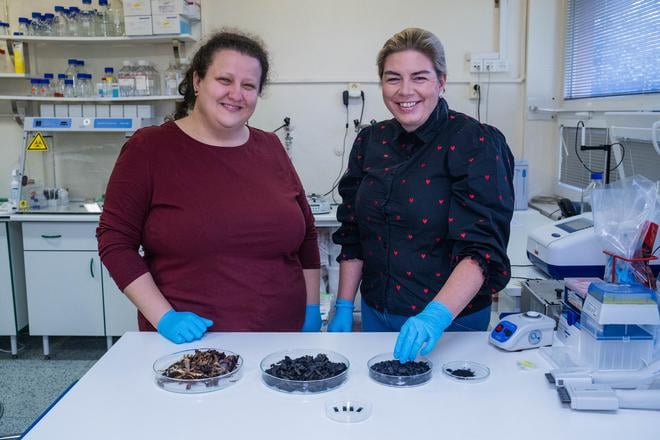Most people who attempt making a Gratin dauphinois would look at the mountain of potato peels left afterwards on their kitchen worktop and simply throw them in the bin.
But several Slovak scientists instead used potato peelings to develop a unique eco-friendly method of making sensors.
Coffee table idea
Alena Opálková Šišková from the Institute of Materials and Machine Mechanics at the Slovak Academy of Sciences (SAV) told The Slovak Spectator that the idea to use vegetable peels in making sensors came about almost as a joke.
One morning over coffee she and colleagues were debating possible collaboration between different departments at SAV and the idea of a project on how to process food waste was jokingly suggested.
Opálková Šišková regularly cooked one of her favourite dishes, Gratin dauphinois, and realising she had a ready supply of potential test materials, she began bringing potato peelings into work with her. The aim was to find out if they could be used to obtain carbon.
To stay up to date with what scientists in Slovakia or Slovak scientists around the world are doing, subscribe to the Slovak Science newsletter, which will be sent to readers free of charge four times a year.
Working with Lenka Lorencová from SAV’s Institute of Chemistry the pair found a way to transform the peels of root vegetables into a bio-carbon material called biochar for a more ecological method of producing electrochemical sensors.





